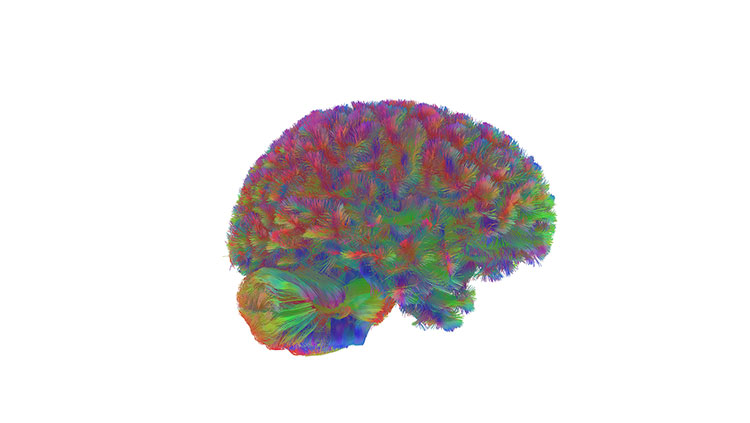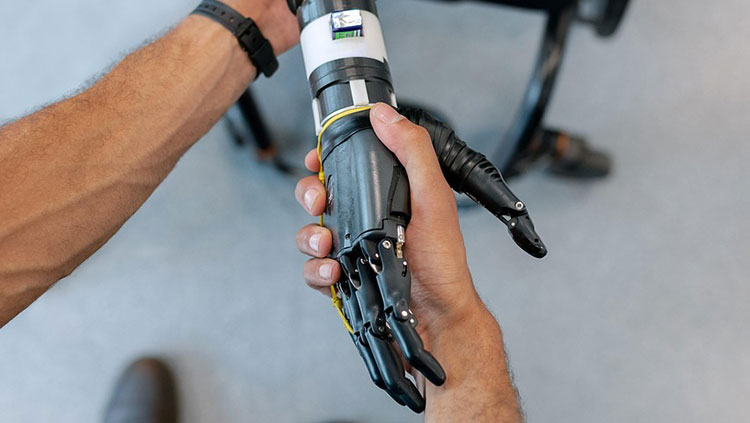ICYMI: Brain Game-Style Exercises May Boost Cognition
- Published6 Nov 2025
- Author Bella Isaacs-Thomas
- Source BrainFacts/SfN

You may assume doing the daily crossword or playing sudoku offers a cognitive boost. In reality, the relationship between puzzles and brain health is far from settled science. But a recent clinical trial, the results of which were published Oct. 13 in the journal JMIR Serious Games, suggests participating in some digital exercises may in fact ramp up acetylcholine levels, a key neurotransmitter associated with cognition. The trial was partially funded by the National Institutes of Health.
Researchers at McGill University recruited a group of 92 healthy adults ages 65 and older and split them into two groups tasked with playing a few games for 30 minutes daily over the course of 10 weeks. The first group served as controls and played well-known hits like solitaire. The second engaged with training exercises developed by the company BrainHQ that became increasingly difficult as users got better at playing them. Participants underwent specialized PET scans before and after the trial to document any changes to the acetylcholine levels in their brains.
The control group saw no significant changes. But the group engaging with the BrainHQ exercises demonstrated a 2.3% increase in acetylcholine upregulation in the anterior cingulate cortex, a brain region linked to decisions and learning. This increase could ostensibly counteract the typical 2.5% decrease in acetylcholine adults experience each decade.
Big Picture: These results don’t prove that certain games can definitively improve brain health. The study was fairly small, and it lacked demographic diversity, according to NBC News. Plus, ability and interest in using a phone or computer to participate in these types of exercises varies widely from person to person. But the trial does offer clues as to how a science-backed game could meaningfully improve brain health metrics associated with cognition, particularly among older adults. An upcoming trial will assess how engaging with those exercises affects people with mild cognitive impairment.
Read More: Brain training game boosts chemical linked to memory and attention, study shows. NBC News
More Top Stories
- Astrocytes play an unexpectedly active role in preserving long-term memories, making them a potential new target for interventions developed to treat conditions like Alzheimer’s. Nature
- A team of researchers identified biological changes coinciding with momentary attention lapses among sleep deprived people, including temporary cerebrospinal fluid flow changes after both losing and later regaining attention. The Guardian
- Premature babies who listened to recordings of their mothers’ voices in the neonatal ward had stronger connections in their left arcuate fasciculus, a brain region linked to language, once they reached full term. New Scientist
- The amount of time spent in REM sleep may influence which details of our lived experiences get consolidated into memory. Live Science
- Different storytelling approaches change the ways information is stored in the memories of a listener. Scientific American
- Dolphins beached during a harmful algal bloom experienced Alzheimer’s-like symptoms linked to the build-up of a specific neurotoxin in their brains, raising concerns about the human health implications of these blooms. Popular Science
- Neurons may transfer electrical signals and exchange proteins with each other via a network of tiny nanotubes. Science
- In a first, doctors improved vision in patients with macular degeneration using a prosthetic retinal implant. The New York Times
CONTENT PROVIDED BY
BrainFacts/SfN
References
What to Read Next
Also In Neuroscience in the News
Trending
Popular articles on BrainFacts.org


.jpg)















